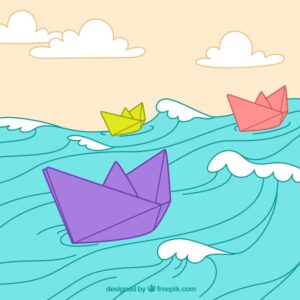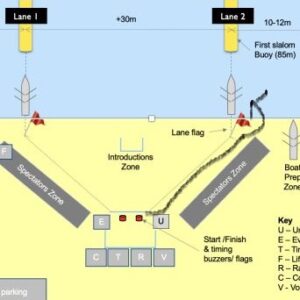Imagine there was a muscle for “Mental Strength”! Would it be trainable?
Our partner website Rowperfect is convinced: Yes, we can train our mental strength. If we look at the world of elite sports, we find a multitude of athletes who possess great mental strength. Often, this mental strength is even more decisive for victory or defeat than other factors.
Mental Strength – A Trainable Matter of the Mind
It is known today that the cradle of our imagination lies in the limbic system in the midbrain. This is where modern mental training comes into play. It is about methods and techniques to improve mental abilities and skills (imagination). The underlying insight is that we influence our subconscious with our thoughts in such a way that it determines success or failure in our minds. Mental training is the learning or improvement of a rowing motion sequence, an action, a situation on the water, a state, a race day through intensive, repeated, conscious visualization without physically performing it simultaneously. Ideomotor training causes even contractions of the muscles – this is referred to as the Carpenter effect (source and more on the subject in German).
As an example: If you participate in a beach sprint, conceivable mental training would be to repeatedly imagine how you get into the boat and what action you perform there first.
Is there a secret to mental strength?
Yes and No. All successful athletes show a similar pattern: Here are the commonalities:
- They achieve relatively consistent performances regardless of situation-related factors.
- They maintain a confident, positive, optimistic perspective – even when the situation looks grim.
- They do not “choke” under pressure when faced with poor performance or problems.
- They cope with distractions without allowing them to affect their optimal focus (consider the first buoy in coastal rowing or choppy waves).
- They tolerate pain and discomfort – Important: This only applies to short-lived pain; if recurring pain or problems occur, do not try to “train through them”, but consult with a coach and possibly a doctor.
- They persist even when progress is challenging.
- They have the ability to quickly put disappointments behind them.
Goals and Imagination of results as the Basis for Mental Strength
In German, there’s a beautiful term for this: The Kopfkino – Mental Cinema. You play through a situation like in a movie in your head. In addition to mentally going through actions you perform in or around the boat, realistic goal setting is also part of mental strength. Most great athletes, together with their coaches, set three types of goals: short, medium, and long-term. A long-term goal is Paris or Los Angeles. A short-term goal might be improving your time for 2000 m on the rowing machine between October and April by x percent. All goals, of course, also depends on you personally.
In mental training, it is also about imagining situations you might face in a regatta. Imagine a situation and then mentally go through how you would react to it – the Mental Cinema. In practice, it looks like this:
In your mind, repeatedly reinforce how it feels to be in position 3 at the start after 250m and what to do to get to first place. Imagine how you make the strokes on the water to pass your opponent. Moreover, anchor the final result in your imagination. So think about what it’s like to stand on the podium or pass an opponent at the end. Consider how you can excel in crucial moments.
Are these secrets? Not really, right? There are many training methods today that can improve your mental strength and encourage you to think positively. Of course, mental strength – as one suspects – is also a matter of the athlete’s personality. Not every athlete believes their “glass is half full”.
So – if you want to train mental strength – go through various situations in your mind. And also talk to your coach. They usually have a lot of racing experience and know how you can proceed.







